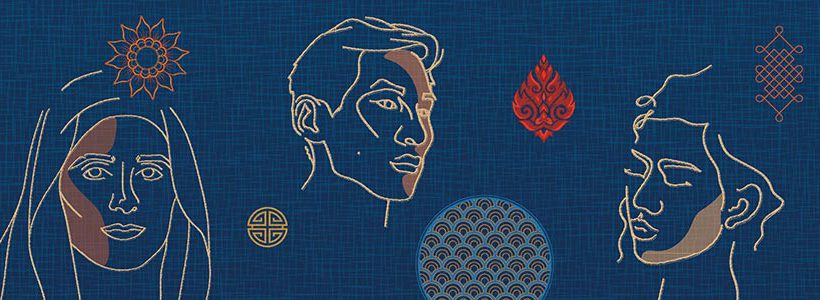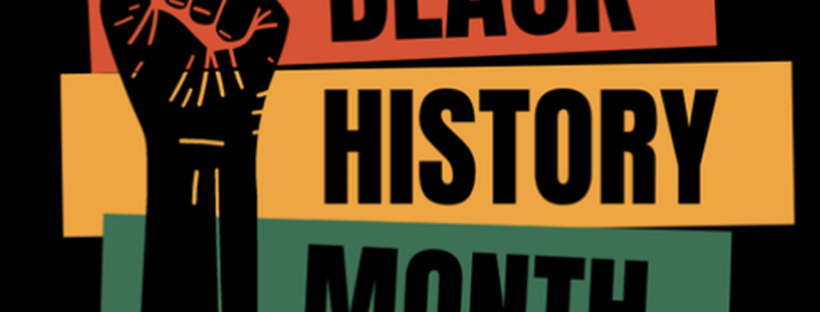Category: Advocacy
Asian Heritage Month is the perfect time to learn more about Asian-American/Canadian culture through your preferred arts, media, and flavours.
Film & Television
Over the last few years, Asian communities have been given more opportunities for authentic representation in film and television. Below are a few links to stories explaining the impact that casting and storytelling in mainstream media has had on Asian communities:
- ‘Crazy Rich Asians’ is going to change Hollywood. It’s about time. Time (2018): Link.
- Seeing ‘Didis’ on screen: What South Asian representation on Bridgerton means to the diaspora. The Star (2022): Link
- Pixar’s Turning Red: Adolescence, Asian family dynamics and diversity. Cold Tea Collective (2022): Link.
Books [Source: https://www.cbc.ca/books/17-canadian-books-to-read-for-asian-heritage-month-1.5135252]
To celebrate Asian Heritage Month, CBC Books has curated a list of 17 novels, nonfiction, comics and children’s literature by Canadian writers with Asian ancestry.
Included on this list is Chop Suey Nation by Ann Hui, which includes honourable mention and interviews with the family behind Thunder Bay’s own Ling Lees restaurant.
Fun fact: “Chinese food” as we know it in small-town Canada is not authentic Chinese food. To quote Hui:
“It’s a food that was created out of discrimination and racism and ingenuity and creativity. It tells such a fascinating part of our history here in Canada.” – Ann Hui
Read the full article on CBC’s website for the list of all 17 recommended books.
Want more inspiration on a regular basis? Follow these accounts on Instagram or subscribe to the Cold Tea Collective newsletter here:
Asian Heritage Month: Anti-Asian Racism
While Asian Heritage Month is an opportunity to celebrate Canadians of Asian descent , it is also an important opportunity to address the realities of anti-Asian racism. Below, we take a closer look at recent examples of the impact of Anti-Asian racism and what non-Asians can do to help.
Anti-Asian racism in Canada
Source: https://www.canada.ca/en/canadian-heritage/campaigns/asian-heritage-month/anti-asian-racism.html
In Canada, anti-Asian racism refers to historical and ongoing discrimination, negative stereotyping, and injustice experienced by peoples of Asian descent, based on others’ assumptions about their ethnicity and nationality. Peoples of Asian descent are subjected to specific overt and subtle racist tropes and stereotypes at individual and systemic levels, which lead to their ongoing social, economic, political and cultural marginalization, disadvantage and unequal treatment.
The term Asian encompasses a wide range of identities that the very term Asian can obscure. While all may experience being “otherized,” specific experiences of anti-Asian racism vary. Some are constantly being perceived to be a threat, some face gendered exotification and violence, some are more likely to be subjected to online hate and racist portrayals in the media, while others face Islamophobia and other forms of religious-based discrimination.
COVID-19 and anti-Asian racism
Xenophobia and racism toward Chinese and other Asian communities has been on a rapid rise since the outbreak of COVID-19. Â To confront that racism, several Chinese Canadian organizations across Canada have partnered on the COVID-19 Racism in Canada incident reporting project (covidracism.ca) to amplify voices and experiences. For more information on reported acts of anti-Asian racism in Canada, check out the Fight COVID-19 racism website: https://www.covidracism.ca/
To learn more about the experiences of Asian-Canadians during this pandemic, check out this recorded CCDI Webinar:
The intersection of race, mental health, and stigma in the age of COVID-19.
May 28, 2020:Â https://www.youtube.com/watch?v=T106ittMlTo
Fighting anti-Asian racism
Source: https://www.canada.ca/en/canadian-heritage/campaigns/asian-heritage-month/anti-asian-racism.html
Here are some ways we can all contribute to tackling anti-Asian racism and building an even better and consciously more inclusive society where everyone is able to participate fully:
- Learn about pan-Asian diversity and the unique identities and cultures that have enriched Canadian society
- Challenge stereotypes and consider how they are rooted in the history of anti-Asian racism
- Show solidarity with Asian communities in Canada, i.e. by supporting local Asian businesses and organizations
- Be an ally – call out acts of racism, discrimination, and micro aggression and actively support those victimized by anti-Asian racism
- Interrupt unconscious biases and consider how they can affect your behavior and decision-making
Interested in learning more about how to be an ally to Asian-Canadians? Check out these free training opportunities:
Bystander Intervention Training to stop Anti-Asian/American and Xenophobic Harassment.
Via: Right to Be Foundation.
May 24, 2022: 8:00pm – 9:15pm EDT:Â Link
Bystander Intervention in the Workplace: Mini Training.
Via: Right to Be Foundation.
May 31, 2022: 5:00pm – 5:30pm EDT: Link
Celebrating Asian Heritage Month
May is Asian Heritage Month in Canada, a time to reflect on and celebrate the contributions that Canadians of Asian descent have made and continue to make, to the growth and prosperity of Canada:
Asian Heritage Month has been celebrated across Canada since the 1990s. In December 2001, the Senate of Canada adopted a motion proposed by Senator Vivienne Poy to officially designate May as Asian Heritage Month in Canada. Over the last two centuries, immigrants have journeyed to Canada from East Asia, Southern Asia, Western, Central and Southeast Asia, bringing our society a rich cultural heritage representing many languages, ethnicities and cultural traditions. (Source)
Want to spread the word about Asian Heritage Month?
Check out the campaign toolkit here: https://www.canada.ca/en/canadian-heritage/campaigns/asian-heritage-month/toolkit.html
Events in Asian Canadian History
Source: https://www.canada.ca/en/canadian-heritage/campaigns/asian-heritage-month/important-events.html
Since the late-1700s, people of Asian descent have made important contributions to Canada’s history and identity. Each year, as part of its annual Asian Heritage Month campaign, the Government of Canada encourages Canadians to learn about how Canadians of Asian descent have and continue to help shape Canada as we know it today. These include, amongst others:
- Canadians of East Asian descent
- Canadians of South Asian descent
- Canadians of Southeast Asian descent
- Canadians of West Asian descent
- Canadians of Central Asian descent
Interested in a more community-driven perspective on Asians making an impact?
Check out this list from the Cold Tea Collective, a website dedicated to celebrating the Asian diaspora. https://coldteacollective.com/asian-canadians-making-it-while-making-a-difference/
Celebrating Black History/Célébrons l’histoire des Noirs
Check out this great resource from the College of Early Childhood Educators! Let us know what you think in the comments below.
Call to Action
Now that February has come to an end, it’s important to consider how to continue combating anti-Black racism all year long. Below is some information from the Canadian Centre for Diversity & Inclusion on how to be a better ally to Black communities.
Call to Action
Source: Canadian Centre for Diversity & Inclusion Sustaining the Black Lives Matter Movement in the Workplace toolkit (2021)
Non-Black employees can sustain the BLM movement by striving to be allies to Black employees. Allies actively seek to understand, earn trust, continuously educate themselves and show accountability for their mistakes and repair work relationships when harm has been done.
Part of being an ally is acknowledging your privilege and using it to support others. One way to begin this journey is by asking yourself:
- What privilege do I have because of my race, education, gender, sexual orientation, ability, socio-economic background, etc.?
- How can I use that privilege to support/amplify colleagues?
- Are there opportunities in my workplace to listen to the lived experience of Black colleagues? If not, how can I support/advocate for the creation of these spaces?
- What educational initiatives can I participate in/start to promote diversity and inclusion at my workplace?
- What can I do to be an agent of change within my spheres of influence?
Want more tips? Click Here to Download the Toolkit
Black History and Early Childhood Education
On February 22, we shared how educating yourself about Black history is one of the ways in which you can help to combat anti-Black racism. Today, we are encouraging you to become familiar with Black early childhood leaders, and other resources and information related to our field of work. Being open to different perspectives, diverse resources, and being knowledgeable about Black pedagogy can help you to better support all children and families.
- Early Childhood Leaders to Celebrate for Black History Month: https://www.himama.com/blog/black-early-childhood-leaders/
- Celebrating Black History Month: https://www.zerotothree.org/resources/3876-celebrating-black-history-month
- Black History Month Resource Guide for Educators and Families: https://centerracialjustice.org/resources/black-history-month-resource-guide-for-educators-and-families/
- Black History and Early Childhood Education: Five Resources to Explore for Black History Month: https://www.naeyc.org/resources/blog/five-resources-explore-black-history
COMBAT ANTI-BLACK RACISM
“There are many actions we can and must take to start to eliminate anti-Black racism in Canada and drive lasting change. It starts on the individual level, where we encourage Canadians to speak up, identify inequities, commit to action, and become allies in the movement for change.” – Civic Action, 2020
Three Things You Can Do To Help Combat Anti-Black Racism
Source: » anti-Black Racism Social Action Cards from Centennial College and City of Toronto
 1. Acknowledge how racism has shaped you
Racism is like an invisible gas that we all breathe. Whether we benefit from it or internalize messages that harm us, racism shapes our thinking and actions, often unconsciously, even if we don’t want it to. Once we acknowledge that, we can begin to explore how we contribute to the problem and what we might do to stop it.
2. Educate yourself
Become aware of the holes in your knowledge. Once you are aware of the holes, it is your responsibility to begin filling them in.
3. Speak up and do your part
Too often, the job of speaking out against racism is left to people of colour. This is unfair. To be effective, all people must be willing to do a good part of the heavy lifting.
Anti-Black Racism in Canada
“Black History Month in Canada is essential since it educates Canadians. Few Canadians know that slavery once existed in Canada, or that many of the British Loyalists who came here after the American Revolution were Black. They do not know that segregation was accepted in Canada well into the 1960s. It is a reminder to all Canadians that racism is not a matter just of the past.” – (Donald H. Oliver, 2008)
Despite how far society has come, anti-Black racism remains an ongoing issue in Canada. A 2020 report from Civic Action sheds light on the pervasive reality of anti-Black racism in Canada and what to do about it.
To encourage ongoing learning in honour of Black History Month, we encourage you to read this report to better understand how anti-Black racism continues to impact Black Canadians: https://www.bcg.com/en-ca/publications/2020/reality-of-anti-black-racism-in-canada
Some highlights from the report include:
- Black students are four times more likely to be expelled from a Toronto high school than White students
- Black university graduates earn only 80 cents for every dollar earned by White university graduates – despite having the same credentials
- Black women are three times less likely to have a family doctor than non-racialized women in Ontario
For more information about the pervasive issue of anti-Black racism in Canada, you can read the Civic Action report or check out the following educational resource from the Canadian Centre for Diversity and Inclusion on the history of race relations in Canada: https://ccdi.ca/media/2342/20200804-toolkit-a-brief-history-of-race-relations-in-canada.pdf
Take Action through professional learning!

This past January, the CECEs launched the new government-mandated Sexual Abuse Prevention Program for College members. All registered early childhood educators (RECEs) working in licensed childcare and child and family programs will need to take this mandatory program as part of their Continuous Professional Learning (CPL) program.
Throughout the year, RECEs will have opportunities to expand their knowledge with current information on child sexual abuse and prevention. In July 2022, online education and practical tools will be launched in partnership with the Canadian Center for Child Protection, an organization dedicated to reducing sexual abuse and exploitation of children through programs, services, and resources. The flexible online learning modules are available any time at no cost to members, in English and French. The Ontario College of Early Childhood Educators has additional information about this new requirement here!
This information and more can be found on the CECE website.




